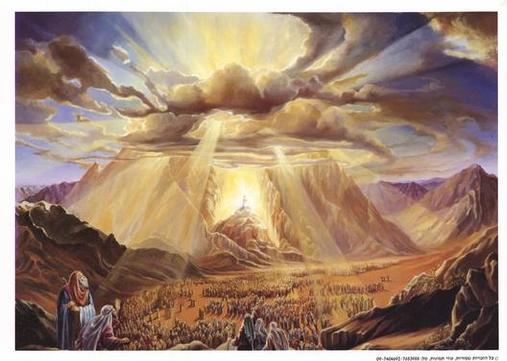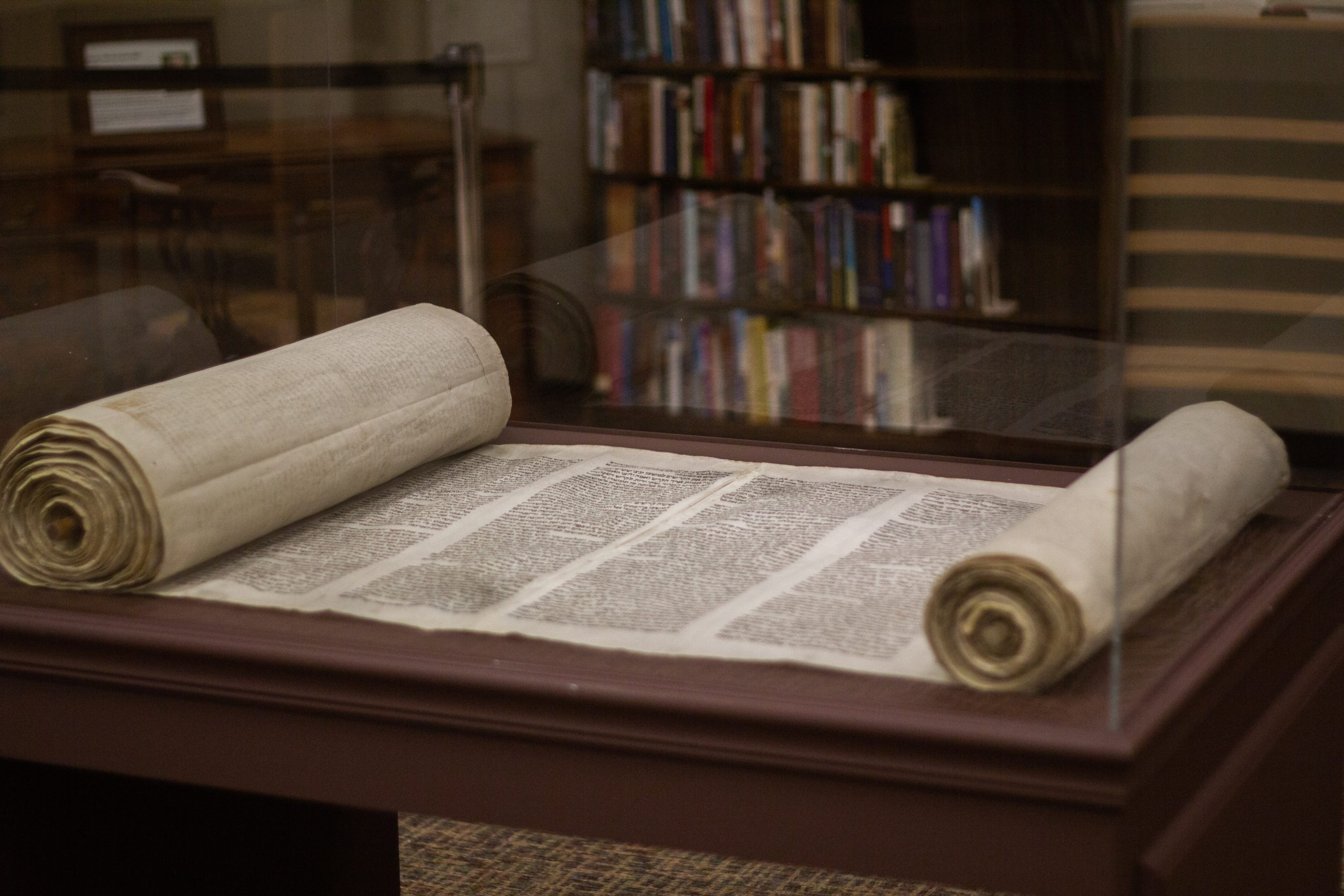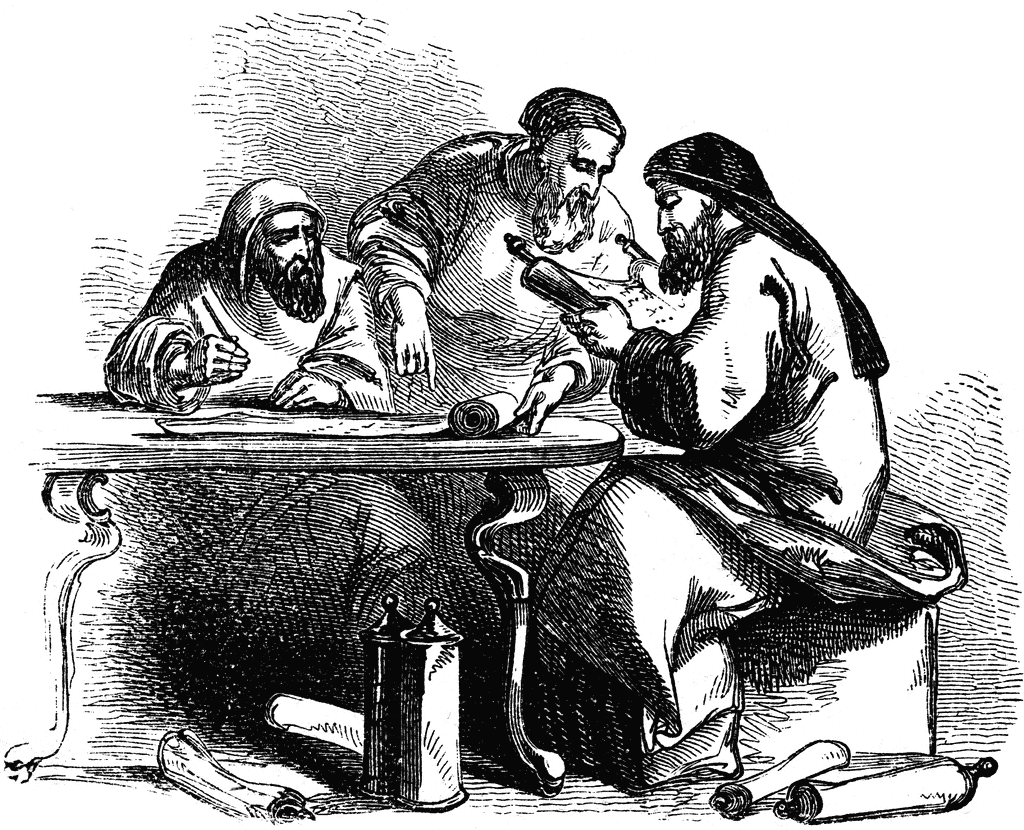Overview: A response to the claim that the early Prophets don’t mention Sinai because it was a later development in Judaism. A few references to Sinai; why it is underemphasized: why there is no biblical holiday commemorating the Sinai event.
Many bible critics assume that the early Prophets – Hosea, Amos, Micah, and the first half of Isaiah – were not familiar with the revelation at Mt. Sinai in which God reveals Himself to the Israelites and gives them the Ten Commandments.[i] They claim that there are areas in Tanakh where Sinai should be mentioned yet isn’t, implying that they were unaware of the Sinai myth that was only later to develop. Even the later biblical books barely mention it to the exception of Nehemiah (9:13-16) which is considered from the latest books written in the early Second Temple era.
See this for example:
“In light of the clear centrality and importance of the Sinai theophany in the book of Exodus, and in passages in Deuteronomy… it is striking to note that, in the rest of the Tanach, this event is almost totally ignored! Not once is the giving of Torah at Mt. Sinai explicitly referred to in the entire book of Psalms. Mention can even be made of the relatively less impressive divine act of leading Israel through the wilderness (Ps. 136: 16), but the revelation and lawgiving at Sinai are nowhere to be found.
The revelation at Sinai is also absent in the prophetic literature as well as from other reviews of Israel’s history, such as Deuteronomy 26:5-9; Josh. 24, and 1Samuel 12: 8. Nor do we find the lawgiving at Sinai anticipated at any point in the book of Genesis , in contrast to the exodus which is anticipated in Gen. 15.
This explains why the Torah contains a festival commemorating the Exodus from Egypt, but none that commemorates the giving of the Torah. Only in the Second Temple period was Shavuot transformed to commemorate the giving of the Torah.”[ii]
In this article we won’t debunk the critical theory that the Sinai account developed over time. Instead, we will provide an alternative model in which the Sinai account is historical and the early Prophets were also well aware of it. As for the historicity of Torah in general, the Sinai account included, see here.
Early mention of Sinai:
Contrary to what many believe there are indeed a few references to a revelation of some sort at Sinai in the early biblical writings. Sure they are vague but that doesn’t mean that they necessarily weren’t aware of the story as recorded in Exodus and Deuteronomy. It’s impossible to prove that they knew the story exactly as recorded in Exodus and Deuteronomy, but similarly it’s impossible to prove that they didn’t know of the story as recorded there.
“The mountains quaked— Before the Lord, Him of Sinai, Before the Lord, God of Israel.” (Judges 5:5, considered an old text by critical bible scholarship)
“God is coming from Yemen, The Holy One from Mount Paran. Selah. His majesty covers the skies, His splendor fills the earth.” (Habakkuk 3:3 using language similar to Deut. 33:2 which refers to Sinai in these terms)
“He said: The Lord came from Sinai; He shone upon them from Seir; He appeared from Mount Paran, And approached from Ribeboth-kodesh,…” (Deut. 33:2)[1]
“The earth trembled, the sky rained because of God, yon Sinai, because of God, the God of Israel.” (Psalms 68:9, likely an early Psalm composed during the united monarchy according to critical scholarship[2])
“God’s chariots are myriads upon myriads, thousands upon thousands; the Lord is among them as in Sinai in holiness.” (Psalms 68:18, again an early Psalm in all likelihood)
“There was nothing inside the Ark but the two tablets of stone which Moses placed there at Horeb, when the Lord made [a covenant] with the Israelites after their departure from the land of Egypt.” (I Kings 8:9, considered a later text of the Josiah period according to critical scholarship[3])
“He arose and ate and drank; and with the strength from that meal he walked forty days and forty nights as far as the mountain of God at Horeb.” (I Kings 19:8)
It is thus clear that the early Israelites were familiar with a holy mountain called Sinai, in which God apparently had some revelation there. So why can’t we assume (the possibility) that these early writers knew of the Exodus and Deuteronomy Sinai accounts?!
This is besides for the many references to Moses the Lawgiver and his Law all throughout the biblical books including the “older” book of Micah (6:4). Hosea 12:14, also considered an older text, alludes to Moses speaking of a prophet taking the Israelites out of Egypt.[4]
Why is it so underemphasized?
There are many references to Torah Law throughout the Torah, so the writers may have found no need to mention the origins of the Torah Law. Whereas Exodus is referred to as is – the Exodus. Thus every time the Torah Law is mentioned, it is technically a reference to the Sinai revelation.
Moreover, the Sinai event was not as significant as many of us make it nowadays. Technically the Torah was given throughout a 40-year period, instead of the one-time revelation at Sinai as many of us now perceive. (Moses continues to receives laws at the foot of the mountain, from the Mishkan/Ohel Moed, above the cherubs, that was set up at Sinai.[iii]) The Sinai revelation was a significant one for the actual generation who experienced it since they themselves saw spirituality which is why Moses emphasizes the significance of the event to them in Deuteronomy Ch. 4. But for later generations the Sinai event is on par with the rest of the 40 years of Torah giving.
The Exodus, on the other hand, is a momentous national memory in which Gd miraculously redeemed His Chosen Nation in order to make a Covenant with them throughout a 40-year period.
The treaty context:
As argued extensively in Joshua Berman’s ani maamin book, the Deuteronomy treaty, or Covenant, is based off a common military alliance in the Ancient Near East. A superior empire would come to the aid of an inferior kingdom in their struggles against their adversaries. As an act of courtesy, the inferior kingdom would submit itself to the superior one and commit to various stipulations documented in a covenant. The covenant would lay out the historical lead up that resulted in the formation of the covenant. It would describe the aid provided by the superior resulting in the servitude of the inferior party.
The Book of Deuteronomy is by and large a Covenant between God and His people, Israel. Deuteronomy explains the historical lead-up to the treaty, records various stipulations, encourages commitment to the treaty, and describes consequences of obedience and disobedience.[5]
It was the Torah Law that the Israelites were now obligated and privileged to commit to. It was based on the fact that God has redeemed the Israelites from Egypt in a miraculous saga. They were therefore indebted, so to speak, to God. This is why the Ten Commandments begins with “I am the Lord your God who has led you out of Egypt” – since that is the precept that the entire Covenant is based on. In recognition of this treaty-style obligation, the Prophets sought to emphasize the gracious good God has done to the Israelites in the hopes of encouraging the stubborn Israelites to adhere to the Law given at Sinai and the subsequent 40 years.
In order to remember the gracious acts by God to our nation, He commanded that we make an annual celebration to commemorate the Exodus (Passover) and the sheltering He provided us in the desert (Sukkoth). This would assure that we stay committed to the treaty with God. There’s no holiday for the Sinai event[6] since it doesn’t illustrate a gracious act of God that holds us accountable to the treaty. Also it was merely the beginning of the Torah giving, which continued for another 40 years.
Does omission illustrate a lack of knowledge?
Some of the biblical books lack mention of Sinai. But expecting every book to mention it is an unfair assessment. It would be comparable to expecting every American journalist to write about the Constitution in all their articles. Many writers skip mentioning things they don’t find of relevance or importance to the context they are discussing for whatever reason they have in mind.
As an example, Ezekiel doesn’t mention the name Moses even once although his contemporaries (e.g. Jeremiah) mention him several times. Clearly, then, it was a writers preferential habits. Micah, an early Prophet, mentions Moses only once. Clearly then he knew of a character named Moses. Yet had he omitted that single verse we would have thought that he was unaware of Moses. This is why these judgments are so sensitive and should avoid all conclusive conclusions.
To help illustrate this point we will mention that the Haggadah, which surely believes in a Moses (even mentioning him once), decided to omit Moses from the long exodus storyline and instead focuses on God’s role in the exodus. Omission doesn’t indicate a lack of knowledge as much as it indicates a different focus of the writer.
Some may wonder why the earlier prophets mention it much less than later Prophets and the alleged Deuteronomistic books. But we must bear in mind that the older books are outnumbered by the later ones by a ratio of 1 to 10. Therefore we would expect to find less references just as we do.
This also explains the lack of mention of the Sinai event among the gracious acts of kindness of God in various biblical books.[iv]
___________________
[1] Some explain these past few selected verses in alternative ways. They also question why Edom/Seir and Paran are mentioned. These are good theories and good questions but it doesn’t negate the fact that Sinai is mentioned along with some revelation. Perhaps even this Edom/Seir and Paran story has been lost to history but that’s not the point. Point is, that the early Israelites had a story of a Sinai revelation.
[2] God is portrayed as a warrior which is indicative of early texts. V. 28 including Northern tribes suggests a united monarchy date as does mention of northern geographic features as well as various early linguistic features.
[3] Sinai is referred to as Horeb, its twin name, all throughout Deuteronomy. See Deut. 4:10 as an example.
[4] Similarly there is constant reference to the Law of Torah given by God. Amos 2:4, an older text, speaks of Torah Law as well.
Similarly, the Exodus from Egypt is repeated on numerous occasions all throughout the biblical books. For older texts that speak of the Exodus, see Amos 3:1, Hosea 11:1, 2:17, 13:4, 12:14, 12:10, Micah 7:15, and Amos 2:10 which also mentions 40 years in Wilderness after the escape from Egyptian enslavement.
[5] There are astonishing parallels between these ancient treaties and the book of Deuteronomy. For example, these treaties would be placed in the inferior kingdom’s holy shrines just as the The Torah was placed in the Holy Ark (Deut. 31:26). Similarly, the treaties were read on solemn occasions just as The Torah was read every 7 years on the Hakhel gathering (Deut. 31:11). See Dr. Joshua Berman’s ani maamin for more on the glaring parallels.
[6] The biblical holiday of Shavuot mentions nothing of the giving of the Torah. Instead it is presented as a harvest holiday. See here for more on this: https://www.thetorah.com/article/shavuot-how-the-festival-of-harvest-grew
[i] See Exodus Ch. 19-20 and Deuteronomy Ch. 4 and 5.
[ii] https://www.thetorah.com/article/judaism-without-sinai
[iii] See e.g. Lev. 1:1; 7:37–38; 26:46; 27:3.
[iv] E.g. Deuteronomy 26:5-9, Joshua Ch. 24, I Samuel 12:8, and Pslams 136.




